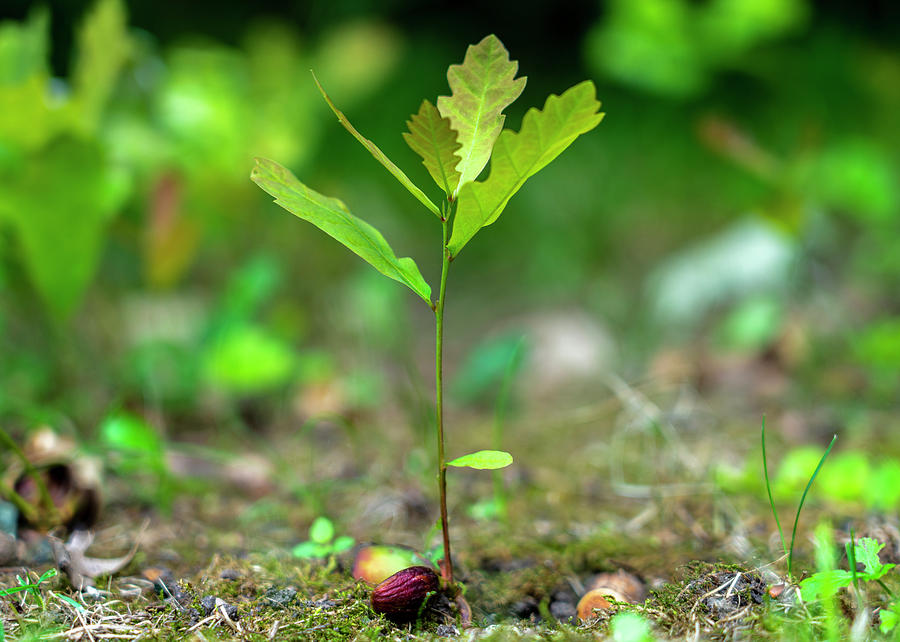|
home | what's new | other sites | contact | about |
||||
|
Word Gems exploring self-realization, sacred personhood, and full humanity
Jiddu Krishnamurti
Public Talk 2, Bombay - 10 February 1971 THERE are several things we should talk over together. One of the things is freedom, It is really a very important subject and needs a great deal of exploration, a great deal of enquiry to find out whether the mind can ever be free or is always time-bound. Editor's note: By "time-bound" K means "thought that is linked to the past or future" wherein the ego believes it will find security. Is it possible for the mind, living in this world, functioning as it should with all the daily problems - with the many conflicting desires, opposing elements, influences, and various contradictions that one lives in, with all the tortures, with passing joys - whether such a mind can ever be free, not only superficially but profoundly, at the very root of its existence. And so we have asked this question, whether man living in this extraordinarily complex society, where he has to earn a livelihood, perhaps have a family, live in competition and acquisition, whether he can go beyond all that, not into abstraction, not into an idea or formula or a concept of freedom, but actually be free. "Freedom from" is an abstraction, but freedom is in observing "what is" and going beyond it. Editor's note: With "freedom from" K is saying that, if we begin with a perception of deficit, if our quest to be a whole person prompts us to say, "I must fill the hole in my heart, I must gain security, I must be free of fear, etc.", then we will never enjoy these ameliorations. What we're looking for already exists within the soul, and this is why K says that the way forward is to quiet the mind, first of all, by simply observing, without judging, what's going on in one's head. Do not look puzzled. But first, if I may suggest, just listen, not accepting or denying, just have the sensitivity to listen, and not draw any conclusion or assume any defensive reaction or resist or translate what we are saying into your own, particular language.
Observe the inner disorder the way you might listen to crows. You hear them screeching, but you can’t do anything about it, so you don't resist but just passively listen. In this detached manner, listen to the inner disorder. You listen as you listen to those crows - noisy, flying about, trying to find a tree for the night where they will be unmolested, and be quiet - you listen to them, and you cannot do anything about it, you cannot ask them to stop calling to each other. You just listen. But if you resist the noises they make, that very resistance denies the freedom to listen to the crows. And if you resist, because you say, "I want to listen to what is being said and they are making an awful lot of noise", that very resistance is an act that prevents you from listening and therefore denies the freedom to listen. Now, if you will, listen, not just merely to the words or the meaning of the words only, but try to comprehend the whole meaning, the inwardness of this word "freedom". That is, we are together going to share this question, travel together, investigate together, understand together, what this freedom implies, whether a mind - that is your mind - that has been nurtured in time, a brain that has evolved through time, that has accumulated thousands of experiences, that has been conditioned in various cultures, whether such a mind can be free, not in some utopian, religious sense of freedom, but actually living in this confused, contradictory world. We are going to ask whether this mind, your mind, as you know it, as you have observed it, whether it can ever be completely, both on the surface and deep inwardly, free. Because if we do not answer this question for ourselves, we shall always be living in the prison of time, time being the past, time being thought, time being sorrow. Therefore unless we really see the truth of this, we shall always live in conflict, in sorrow, in the prison of thought. I do not know how you regard this question, not what your religious teachers have said, not the Gita, the Upanishads, your gurus, your social structure, your economic condition, but what you think, what you say, which is far more important than all the books put together. It means that you yourself have to find the truth of this. And never repeat what others have said but first find out for yourself, test it out for yourself, testing what you think, what you see, not test what others have said. Therefore you are free from authority. Right? As I said, please listen. As you are listening, act, that is, as you listen, see the truth of it. We have to rely on scientific knowledge, other people's experiments, other people's accumulation of mathematical, geographical, scientific, biological knowledge. That is inevitable. If you would become an engineer, you have to have the accumulated knowledge of those who have gathered knowledge about mathematics, structure, strain and so on. But if you would find out for yourself what truth is - if there is such a thing - you cannot possibly accept the accumulated knowledge of what others have said, which is what you have done. You are [then] full of knowledge of the Gita, the Upanishads. What matters is what you think, how you live. And to find out how you live, how you act, what you do, you have to discard totally all the experts' knowledge, the professionals who have given you instructions on how you should live. Please do understand this. Freedom is not permissiveness. Editor's note: It is the freedom to detach oneself from one's mental conditioning which issues from one's culture, education, religion, family, and the like; it is the freedom to detach oneself from images of the past or a projected future wherein one fantasizes the receipt of security, happiness, and salvation. Freedom is necessary for the human mind, so that it can function healthily, normally, sanely. As I said, freedom from something - like freedom from anger, freedom from jealousy, freedom from aggression - is an abstraction and therefore not real. A man who says to himself, "I must be free from anger or from jealousy", is not free [that is, he cannot gain what he's looking for]; but the man who says, "I must observe the fact of anger, actually what it is and learn the whole structure of anger," through observation directly for himself, and through that observation there is freedom, not through the cultivation of the opposite. To cultivate bravery [by will-power, trying very hard] when one is not brave, is not freedom, but to understand the nature and the structure of what is cowardice [to see that it is an inner neediness of the ego] and remain with it [this inner observation], not trying to suppress it or go beyond it, but remain with it, look at it, learn all about it, perceive the truth of it instantly, such a mind is [or will find itself] free from cowardice and bravery. You are getting this? That is, direct perception is freedom, not the cultivation of the opposite. The cultivation of the opposite implies time. I am greedy, sensitive, ambitious, competitive, and being greedy my cultural response is not to be greedy, because the books have said it, and gurus have said it. So my response is not to be greedy, to strive after not being greedy. I am [this] and I must not [do that]. The "must not" involves time, and the factor between "what is" - which is "greedy" - and what you should be is a time interval. In that time interval, a great many factors come in, therefore the mind is never free from greed, whereas direct perception of the fact of greed, not the cause of it, not the explanation or the justification or the denial of it, just the observation without any movement of thought, is [or will become] freedom from greed. Look, Sir, you live with formulas, don't you, concepts, principles, beliefs, ideals? You demand a purpose, a goal, something you want to attain, reach, don't you? Observe it in yourself. You have beliefs, goals, purposes, conclusions. Now, you are in a confused world living a confused life, living a contradictory life, and you say there must be clarity, there must be enlightenment, there must be hope. So there is a time interval between what you are and what you are trying to achieve. Right? Between what you are and the principles, the conclusions, the concepts that you have, is a time interval. In that time interval other factors, other influences, other incidents happen. Therefore you never can achieve that, and therefore there is no freedom in the future. Therefore, when you deny or when you see the truth that conclusions, formulas, beliefs, ideals are the factors of time, and therefore they are binding and they do not bring freedom, then you completely wipe all that away. Then you have only what is left, which is your greed. Now to look at it completely, totally, is to never suppress it, never to give explanations, never to justify, but just to observe. As you listen to those crows, you do not do anything about it. In the same way listen, observe completely the fact that there is greed and remain with it - which means that the observer is the observed, the observer is greed and not separate from the thing he calls greed - and see that totally. In that perception there is total freedom. The observer is the past, the observer is the accumulated knowledge who says you must not be greedy or, justifies greed. So can this mind observe without the observer? When it so observes, perceives, there is a total comprehension of freedom. Look, without a mind being free, you cannot live in order. You live in disorder - not only outwardly but inwardly. You try to bring about order, but that which you try to bring about, which you call order, is within the area of disorder. So a mind has to have order, and total order is total freedom. I am going to go into this question, of order. Please do listen, give your heart to this, because it is your life. First, seeing actually, not theoretically, that your life is disorderly, contradictory, a putting on of masks in front of your guru and in front of your politician, in front of your superior, pretending, hypocritical, without any sense of love, consideration, beauty - that is your life. In that life in which you live there is great disorder, and the mind, the brain realizes that it must live in order, whether that order is neurotic or not, in that very neurosis it tries to find order. Sir, have you noticed that when you have learnt something mechanical, technological, your mind, your brain functions very easily, almost mechanically, which means the brain needs to function in perfect order. You see that, don't you? The brain needs protection, order, it must be completely secure, to function properly. It thinks it will function properly if it has a conclusion, because it sees round itself great disorder, and it needs to have a belief, a principle, a conclusion, in which it hopes to have order, safety. So it is all the time striving to find order, whether in illusion, in authority, in somebody else's experience, in a conclusion. It is trying to find order; but that discovery or trying to find order in illusion creates conflict and therefore it runs away from that conflict into another conclusion. So the mind, the brain is constantly seeking order, because in order there is security. The more precise the order, the greater the security, the greater is the capacity to function. And it has tried to find order in nationality which brings disaster; because it brings wars, it has tried to find order in authority, obedience, following, and to create thereby conflict between "what is" and "what should be". And it tries to find order in morality, social morality, and that two brings disorder, which is contradiction. It tries to find order in knowledge, and knowledge is always the past, so the past becomes tremendously important, or the future, which is a concept, a principle, an ideal. So the brain is constantly seeking order and at the same time creating disorder, because it has not found order. That is what you want - don't you - security, order? There is complete disorder politically, religiously, in the family, in every way. And the mind, the brain escapes from this disorder into what it calls the ideal, or the promise of some guru who gives you enlightenment. So order can only be found, order comes naturally, easily by itself when you understand disorder. The understanding of the disorder of your life, not how to go beyond it, not how to suppress it, but to understand the nature of it, the structure of it, then out of that comes order, which is living. Editor’s note: K characterizes the mind’s craving as seeking for “order.” It is an order rooted in overcoming the existential neediness, the inner sense of “I don’t have enough” because “I am not enough.” To experience this "not enough" feels like disorder. To feel satisfied, whole and complete, with no need to sedate cravings, is to find, as he uses the term, "freedom". So freedom is order, complete order, and that order has come into being through the understanding of disorder, not through seizing order. Editor's note: "seizing order." This is the essence of evil. You see something that you think will "make me happy," will calm the inner craving - and so you grab for it, take it from others, seize it. But the sought-for mental "order" cannot be obtained by grasping. If you seize order, it becomes a principle, an idea, a formula, but if you actually understood totally the disorder of your life, of everyday life, if you do not run away from it, try to cover it up, suppress it, but observe it, look at it with your whole heart and mind, then out of that comes an extraordinary sense of order which is living, moving, and has a quality of vitality, vigour. Editor's note: K is defining "freedom" here as a mind no longer burdened with the attempts to create order by seeking for some external security but, instead, simply observes the disorder within the mind, and from that "choiceless" observation a new kind of freedom emerges.
I do not know if you have noticed that before you go to sleep, if you are at all sensitive, you review the day, don't you? Do you do it? That is, you review - you say, I should have done that, I should not have said that, it would have been better if I had put it that way. You review the day, you look over the whole day, and the mind does it, because it tries to bring order before it goes to sleep. As I said, both in one's life and outwardly order is essential in relationship, and the brain is always trying to find order in various directions, always moving out or moving inward, and as you observe before you sleep, if the mind is at all sensitive, it reviews the day and looks over it and says, "This is a mistake, that is the right thing", looking, observing, trying to bring order. And when you go to sleep, it tries to establish order through dreams because it demands absolute order, because in order there is protection, safety. So when the mind during the day, not artificially, not with determination, not with will, observes totally the confusion, the untruth, the hypocrisy, the contradiction and brings order there, and then when it goes to sleep, the mind, the brain then, because it has brought order during the day by observing the disorder it lives in, then that brain has a quality of total freedom to observe. So if you observe your life as it is, see the beauty of it and the destructive nature of confusion, with a mind that has no formula, that has no principles [to guide and restrict thought], that is free to observe and so listen, then there is freedom, which is order, a freedom that is complete, living in this world; and it is only such a mind that is free, that knows what love is, what beauty is, and it is only such a mind that being free, can perceive what truth is. Now would you like to ask questions? Before you ask them, please, you are asking the question of yourself, and we will together answer the question. You ask the question and do not wait for the speaker to answer it, but in the very asking of this question we are both of us going to share the question. That is affection, that is care, that is love, not the waiting for some authority to answer it. When the authority answers it, whether it is the book, the guru or anybody, you are not seeking truth. You want confirmation, assurance, but if you ask the question, does not matter how trivial, and you are asking it of yourself, and in the very asking of it aloud, then we share it together. Then it is a common problem. What is common is communicable. Therefore we can share it together and in that sharing there is great beauty, there is great affection. That is love - to share. Question: I have no energy to be aware of my problems and deal with them. Krishnamurti: Now, how do you have energy? That is the question, is it not, Sir? Editor's note: This "energy", in its most potent sense, I submit, is a joy of living, an exuberance to grow, change, and soar. But this kind of energy cannot be unleashed until one accesses the "wellspring of life" deep within. Now we are sharing it together, you understand. Again this is really a very, very complex problem. First of all, one has to understand what energy is. We have broken it up into many fragments: the energy that needs to do business, the energy that needs to write a poem, the energy that needs to be a good, first class, non-governmental scientist. You need energy to understand, and that understanding has been broken up too, as into intellectual understanding, verbal understanding. You have broken up your energy into sexual energy and moral energy. Your energy is broken up. So man has broken up this energy, human energy and cosmic energy. That is a fact, if you observe it in your life. You are one thing in the office and another at home. You say one thing which you do not mean and do something else. If you are rich, you want to be flattered, if you are poor you are frightened. So that goes on. So there is constant breaking up of energy. When you break up energy, there is conflict. Observe this, Sir, in yourself. There is conflict when you break up your life as a religious life, as a business life, as a scientist, as a politician, as a cook, or whatever it is. When you break it up there must be conflict. And where there is conflict there is the ending of energy, there is a wastage of energy. Editor's note: Much of what we do, as we expend energy, is devoted to repressing our fears, running away from life, distracting ourselves from the deepest-level fear, which is the fear of death. When you resist, that is a wastage of energy; when you run away from "what is" that is a wastage of energy. When you follow your guru who tells you what to do and between what should be and what you are, there is conflict, and where there is conflict it means there is division and therefore struggle, pain, fear. Editor’s note: “Guru” means “to point". A good teacher can point the way, but only point. One needs to journey alone on this trip. We get into trouble when we expect a guru, teacher, or Dear Leader, to do things for us. No one can stand before God in one’s stead. Most of religious tradition in the world would suggest otherwise, but this is gross error. Evidence of this misguidance rests, not just in the “scientific evidence for the afterlife” which informs us how things work over there but, in the utter failure of the world’s religions -- despite a surfeit of ritualistic pageantry -- to produce a spiritual people. See much discussion on the “Jesus” page. So, where there is conflict there is wastage of energy, and this conflict will inevitably arise when there is the breaking up of energy. When you do not live a totally harmonious life, there is a wastage of energy. When you say to find God, truth, you must lead a celibate life - and there is a battle in you: the desire, the sexual urges, the lust, being suppressed, held back, disciplined, controlled - in that, between what you think is the way to reality and what actually is, there is a contradiction. In that contradiction there is conflict and the very conflict is a total wastage of energy. So one has to find a way of living which is both chaste, non-corrupt, in which there is no conflict whatsoever. Then you are full of energy. Sir, look, most of us have had sorrow, not only the physical pain but devastating sorrows in our lives, deep, biting sorrows, tears, aching hearts, despair. The thing called sorrow, we have all had it, you all know it. And you run away from it, you say it is my past karma, or you try to find the cause of it, or you try to escape from it through going to the temples, churches, prayers, meetings - you know all the things we do to run away from this terrible thing called sorrow. So what happens? to live without repression, to bravely face the inner discord, the fear of death, the sorrows of the past, the threat of not finding happiness -- all this, a refusal to resist and hide -- to live life openly, honestly, without embedding oneself in 'other power', opens the door of the soul Sorrow is there and you escape from it through radio, sex, god, whatever it is, and in that escape, in that running away, from "what is", there is contradiction, and therefore there is conflict. In that there is wastage of energy, whereas if the mind remained alone with sorrow, not trying to run away, not trying to resist, remained completely alone, then you would see out of that lone perception comes that tremendous energy that transforms that sorrow into passion - not lust - into intensity, into a tremendous energy, which no book no guru, no teacher can give. Therefore you have to learn, observe from yourself and you have an energy that is unending. Question: Can we see God through observation? Krishnamurti: I do not know what it means, the meaning of that word, but I think the gentleman means, can we seek God or can we, through observation of nature, of man, of the beauty of the earth, the beauty of a cloud, the beauty of a face, the laughter of a child, through observing all this marvel of life, can we find God? Is that the question, Sir? we cannot find God, the truth, the true mate, ultimate beauty, or the mystical experience by 'running after it,' by 'seizing it,' because none of these are elements of the external world but must be approached via the inward path You will never find it if you seek it. You understand the answer? You will never find it if you run after it. You will never find it if your intention is in seeing the beauty of the earth, in seeing the light on the water, in seeing the perfect line of a mountain, and you hope through seeing, to find that. you will never find if you seek externally because it's not 'out there' to be found You will never find it because you cannot find that through anything, through your sacrifice, through your worship, through your meditation, through your virtue. You will never come upon it because your motive is all wrong, because you want to find that, not in living, but somewhere else. You must establish right relationship with man first, which means you must know what it means to love, what it means to be compassionate, what it means to be generous when you have a great deal, what it means to share with another the little that you have, to establish this marvellous order in living, daily living. Then if you have established that order, which is freedom, then there is no seeking. When you use the word "seek", there are several things involved in that word, in the meaning of that word. When you are seeking, you hope to find something, and how do you know when you have found something? You are all seekers after truth or experimenters of truth. You are always talking about seeking. Please listen to this. In seeking there are several things involved - there is the seeker and the thing that he seeks after. When the seeker finds what he thinks is truth, is God, is enlightenment, he must be able to recognise it. He must recognise it. Right? 'recognition' suggests prior knowledge, without which how will we recognize God, the truth, the true mate, when we find these "Recognition" implies previous knowledge, otherwise you cannot recognise. I cannot recognise you if I had not met you yesterday. Therefore when I say this is truth, I have already known it and therefore it is not truth. So a man who is seeking truth lives a life of hypocrisy, because his truth is the projection of his memory, of his desires, of his intention to find something other than "what is", a formula. So seeking implies duality - the one who seeks and the thing sought after - and where there is duality there is conflict. That is wastage of energy. So you can never find it, you can never invite it. Editor’s note: There is much here to consider. If one says “I am a seeker of God,” then this statement itself, and the mindset it represents, creates a sense of duality, of inner conflict. Almost no one sees this and believes that to be a “seeker” is something positive. The problem is this: to see oneself as a “seeker” is tantamount to admitting “I do not have God, I do not know inner peace, joy, and life.” Questing for God from this basis creates a negativity, which, of and by itself, derails the seeking process. The question will then be asked, “How can we find God if we do not seek?” The answer is, we do not find God via a process of seeking, which process suggests that God is to be found “out there” in the external world. But God will never be found “out there.” Instead of seeking, instead of embarking upon a quest, we are to simply observe the disorder, the fear, within one’s own mind. We are to “choicelessly” stand witness to this mayhem in the brain. As we stay with this process of quietly observing, a new energy, unleashed from within, will begin to emerge. And this will lead us to the “God within.” 'God', for many, is just a thought-form in the head, and has nothing to do with divinity's true essence The God that you call God, which is your invention, that is not God. The thing made by hand in the temple, in an image [of the mind], is not God [but just a thought-form in the head], or the thing made by your thought is not God, is not truth, and that is what you are living on - the image made by the hand or the mind - and if you really enquire into this, if there is or if there is not something which is timeless, not within the field of thought, then you must understand the whole nature of thought. But merely asking, "Will I find God?", you will find him, because what you want you will find, but it won't be true, it won't be the real. So what is important is to understand "what is", which is your life... what's really important is accessing your 'life', which is the inner life linked to God at the core of being; this is utterly different from 'life-circumstance' which people refer to as their 'life' this shoddy, narrow, petty life that you lead, the life of your own vanity. If you bring order in that then you will have freedom, complete total freedom, and it is only such a mind that can see "what is".
|
||||
|
|






